Ali Jason Bazooband in an interview with Bernd Zipper
Ali Jason Bazooband, Director of Innovation and Marketing at Unitedprint SE, is well-known in the industry. He joined the Radebeul-based online print provider at the start of 2015 and has major plans, including enabling local and regional print companies to expand their markets from now on with the help of the online provider’s partner stores and operate throughout Germany and in international markets in future. He outlined his plans in an interview with Bernd Zipper.
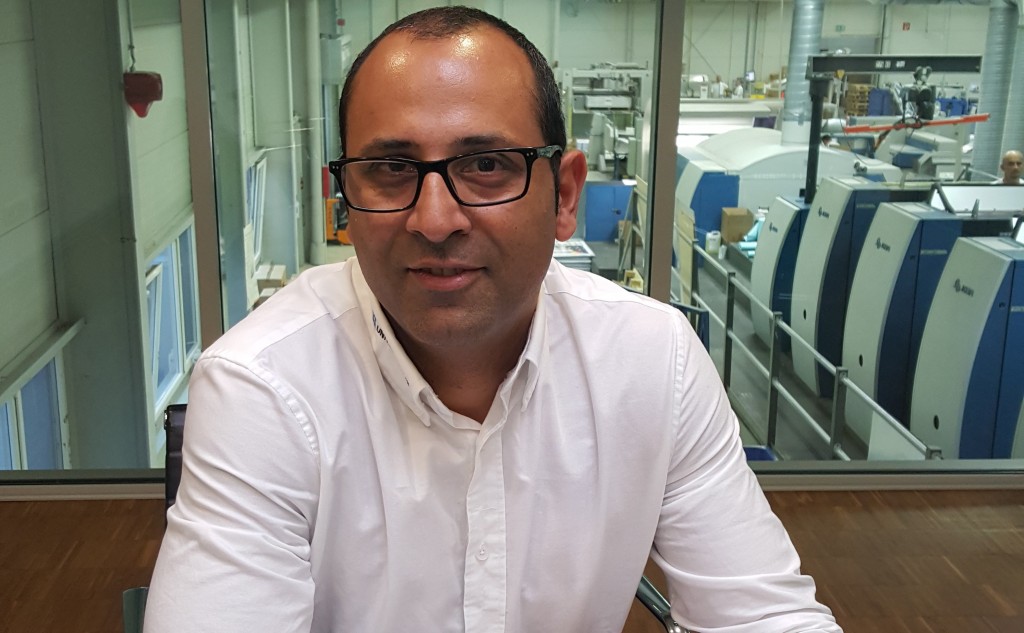
In conversation with Ali Jason Bazooband, Marketing Director at Unitedprint. (Photo: Bernd Zipper)
Bernd Zipper: You have been responsible for innovation and marketing at Unitedprint since January of this year. This kind of function at an online print company is not so common. How can you make a difference in this position?
Ali Jason Bazooband: I am tasked with new product development and sales of our products, services and features. Innovation and marketing should be the rule rather than the exception in any company, and especially in the online print sector. These nine months have flashed by in the blink of an eye. I consciously picked out this challenge at Unitedprint, because I reckoned I will be able to apply my skills and action my ideas effectively in this environment. And that is exactly what has happened.
Bernd Zipper: What is your objective? Internationalization, or in which direction is Unitedprint headed in the future?
Ali Jason Bazooband: Internationalization – I regard that as one of Unitedprint’s particular strengths and it has been put into practice very professionally for many years. Many companies still have these endeavors ahead of them. Only yesterday I had a conversation with a senior executive from a major chain, who asked me: Can you provide support in Italian and Spanish; do you have your own subsidiaries in these countries that can handle billing? It’s pretty cool if you can answer all these questions with yes. Internationalization is an integral feature of the Internet and is not a new trend – of course in combination with attractive products, services and features where pricing, product quality and speed of delivery all have to add up. Growing a business is tough if you can only provide 20 or 25 percent of the products that the market wants. Therefore the challenge is not just internationalization per se, but also very fast provision of more products, services and features in particular. And we especially want to improve performance in every discipline and become more appealing to our customers.
Ali Jason Bazooband: It depends on what makes the most sense. If, for example, we find ourselves in a situation where customers are not willing to wait longer than two or three days to take delivery of what they order, shipping ex Germany takes too long or becomes extremely expensive, that represents a handicap that needs to be removed. In this respect we have no set-in-stone strategies, which dictate that everything has to be produced in-house. Therefore if it benefits our customers, we can also rely on the large number of European specialists, who produce for us to our high standards. We therefore do not necessarily have to add this know-how and capacity to our own in-house resources.
Bernd Zipper: How is Unitedprint generally positioned in terms of cooperation and partnerships? There appear to be signs of a transformation in the industry.
Bernd Zipper
Founder and CEO of zipcon consulting GmbH, a leading consultancy for the printing and media industry in Central Europe. He initiated the E-Business Print Online Studie (EPOS) and acts – in addition to his consulting activity – as an author, lecturer, speaker and moderator. See his profiles on Xing, LinkedIn and GooglePlus.
Ali Jason Bazooband: Generally refusing to consider the issue of cooperation or partnerships would of course be absolutely unrealistic and does not correspond with our day-to-day business. Even competitors order from us. We don’t look at the market in terms of competitors or customers. Very often we have hybrid situations that have evolved over the years. If I look at our customer list these days, it features very familiar names that are in the same line of business as we are. A significant percentage of our customers are print providers, both online and over-the-counter, and we’re proud of that.
Bernd Zipper: People always believe that the major online print providers are constantly “at each other’s throats”. At any rate competition was pretty fierce in the past. Does that mean that the situation is no longer as bad as it once looked?
Ali Jason Bazooband: I maintain that competition was not fierce, even in the past. There are indeed a few rules that need to be observed, to which we also attach importance. We opt to go down the cooperation route if it benefits our customers, but do not partner with companies if there are no advantages to doing so or if it harms us – obviously. But of course we do not have a general aversion to partnerships of any kind.
Bernd Zipper: There have been a couple of circumstances in the past that might have shown Unitedprint up in a very bad light. These include rumors circulating in online forums that Unitedprint gave people vouchers for rating the company positively etc. That somehow does not seem to be quite aboveboard. Do you play this bad-guy role?
Ali Jason Bazooband: No that is definitely not an issue and at no time has that corresponded to reality. No customer has ever received any kind of voucher or bonus just for rating us positively. I prefer customers, who tell me what we don’t do well, so that we can improve fast. In e-commerce terms we are just as transparent as any other firm. To put it crudely we get a smack in the face if we make a hash of things and get praised if we do something well. Of course we all try to help our customers out at all times and not to antagonize them with late deliveries or poor quality. That is one issue. And the second is that you tend not to survive long-term, if you attempt to entice people into rating you positively by giving them dubious incentives.
Bernd Zipper: One of the major trends currently seems to be doing more business with business customers. Business customers often demand specially configured portals. How do you deal with such requirements?
Ali Jason Bazooband: That actually plays into our hands. We have consumer customers and we have business customers, we have customers with family-related needs. We try to channel our customers, keep our brands separate and not mix them up as far as possible. With Easyprint we are appealing to consumers and small organizations. Print24 enables us to serve a broad customer base of resellers, print production professionals, print companies and agencies.
With DDK PRINT BIG we are appealing to professional business customers in the signmaking industry. Our brands differ in their customer approach and the way they are marketed. However our customers can order all our products at each one of our portals, which all feature a proprietary WYSIWYG Editor for DIY design online. We established a position very early on in the online print market and our positioning can be described as very broad-based and multi-tiered, and above all we went down the international road more or less from the start.
Bernd Zipper: Given this broad spread, who are your most important customers?
Ali Jason Bazooband: When web-to-print was in its infancy, we online print providers were still regarded as a threat to conventional print companies or we weren’t even taken seriously for a very long time. Then the market or rather the attitude towards us changed and we were suddenly acceptable as suppliers to the print companies. Then came Web-to-Print 2.0 – I’ll just call it that – and that entailed print companies buying print from us and reselling it. And now we take Web-to-Print 3.0 to mean partner platforms. So that means that competitors from the earlier Web-to-Print 1.0 period became customers in the Web-to-Print 2.0 era and now Web-to-Print 3.0 is transforming us into sales partners. And that applies particularly in the case of print companies and agencies or resellers.
We have created a USS Unitedprint Shop Services-branded sales platform (www.unitedprintshopservices.com) precisely for these customers. This is a business model that significantly accelerates both our partners’ business and our own growth by utilizing our scaling and network effects. You could also say win-win in the purest sense of the term. I couldn’t really invent a new product or add-on service that is going through the roof to the same extent as our USS Shops, even if I wanted to. This model fulfils every potential partner’s desire for a web-to-print store within minutes and helps them on their way to becoming professional online print providers. In other words it’s a model that enables them to provide hundreds of new products and services in addition to their previous local/regional over-the-counter offerings at a stroke. And then being able to decide if and what they are going to produce themselves, outsource production to us or to somebody else entirely – isn’t that absolutely awesome!?!

Unitedprint Radebeul-Naundorf
Bernd Zipper: Nevertheless let’s go back for a moment: are specific portals functioning as closed shops for key accounts an issue?
Ali Jason Bazooband: Closed portals are indeed an issue, even if not the most important one. Our business is not based on a closed environment for a privileged few. Why shouldn‘t what’s good be accessible to all? I don’t see that small handful of key accounts in our business. We have hundreds of thousands of customers and there simply aren’t the two or three key accounts that we are familiar with at many print companies. We have a major opportunity to minimize risk and enhance opportunity for all, not just to target key accounts but ultimately to treat all customers as equally important.
Bernd Zipper: Your competitors however are focusing on key accounts and of course on providing them with personal support. Not just in a KAM context but also during production. How is Unitedprint tackling this issue?
Ali Jason Bazooband: What do you mean by ‘during production’?
Bernd Zipper: If the customer has any queries or needs specific advice. Is there a dedicated contact person available?
Ali Jason Bazooband: Of course we provide a support service – and it’s free-of-charge too – to our customers in Germany and abroad. Customers in our Key Account Program (annual sales of 3000 Euros or more) are allocated a dedicated contact person, who deals in person with his/her customers. As the most senior salesman I too have customer contact every day. There is a wide range of different tasks – changing a file after all, delivering to another address after all, even the one or other issue in need of clarification, but we no longer intervene in production processes. That would call into question everything that we do. We are online print providers – fast and efficient. That must also remain the case for our customers, otherwise they can’t obtain any benefits for themselves.
Bernd Zipper: On our tour we saw the perfect print factory, in the truest sense of the word, i.e. far removed from a boutique-manufacturing facility. Given the system you have in place, we are almost talking Industry 4.0 and linear production. What is Unitedprint’s vision, in terms of production in the future?
Ali Jason Bazooband: Continue to automate. You actually have to see an online print provider as a sales machine powered by IT. Whether we have printing presses now or eventually other machines that enable us to manufacture products in the future is actually irrelevant. It has to be the equipment and workflows that enable us to achieve decent profit margins on a sustainable basis. I tend to see even more automation coming our way. If you take a look at our websites, you will see prices starting at 5 Euros, for example. In other words we are not mechanical engineers that obtain a single order worth two million, but get thousands and thousands of orders worth small amounts. To be able to grow profitably – and that’s all that matters! – you have to operate highly productively and efficiently. That’s why we focus on developing our own software, because standard software, which we would then have to enhance, would only be a hindrance in many respects, including in terms of sales and distribution. And that’s exactly why we developed our USS Partnershops solution entirely in-house.
Bernd Zipper: Where is your personal roadmap going to take you? As Director of Innovation and Marketing – as I understand it, this position has never existed in this form – you will certainly have your own strategy, won’t you?
Ali Jason Bazooband: I never set myself five-year or ten-year goals, because nobody can see that far ahead. But I want to raise Unitedprint’s going-concern value to more than 250 million Euros in three years. This target is very specific and more than realistic.
Bernd Zipper: Nevertheless an ambitious target. What’s your take on online-print volumes in Germany, Switzerland and Austria? Will they continue to grow?
Ali Jason Bazooband: Yes, absolutely. I find it really weird when people suggest that online print providers now dominate the entire print market. We are still light years away from that scenario. There is still a huge market out there – and by expanding our offering, it is even set to grow substantially. Ten years ago nobody involved in web-to-print seriously thought about providing print products, photo products, textile products, signmaking products , advertising media and web services all from a single source. And who knows what else will be added to that list in the near and medium term. That’s why I also never get involved in discussions about pricing, customers and who’s having what printed where and why. The cake is more than big enough and there is still huge potential in Germany, Austria and Switzerland – and in international markets in any case.
Bernd Zipper: We have a couple of large dominant players and a whole bunch of smaller businesses in Germany. And there are always plenty that want to enter the online-print market. Do you believe that smaller companies have even a remote chance of gaining market share?
Ali Jason Bazooband: Absolutely, they in particular are at the dawn of a golden age!
Bernd Zipper: But then only as niche players, don’t you think?
Ali Jason Bazooband: No, not at all. I should like to refer back to what I was talking about when I mentioned our USS Partnershops partner program and Web-to-Print 3.0. Yet we only do this because we can never hope to penetrate deeply or intensively enough into local regions by ourselves with our global offering. print24 and the competition have to date essentially concentrated on scratching the surface, have targeted their marketing and managed their businesses accordingly, because that’s where the most pickings are. But Müller, the butchers, that’s what we’ll call the firm for the sake of argument, is the top dog in their region, making makes life really tough for McDonald’s et al.
That’s exactly how we also view the local/regional print companies and the local/regional agencies that know their markets within a radius of 25 kilometres inside out. We are perceived light years away from being in that position ourselves. We would never be able serve their customers as well as they do. We are now supplying these print providers and agencies with an enormously powerful tool, which will literally help them to develop their own markets. Completely free of charge with complete freedom of action – a store that enables them overnight to offer hundreds of additional products plus their own products and services. They can also freely decide if and which of these products they produce themselves or outsource to service providers (which could be but does not have to be us). We have already received thousands of advance registrations for this program and are getting more in every day. Perhaps we will only set up a few hundred new local web-to-print stores in the next few months. If we receive just ten orders a day each worth between 100 and 200 Euros from these hundreds of stores, anybody can easily work out what that means for our store partners and indeed for us.
Our mission is to be a professional web-to-print sales partner to exactly these local and regional companies. Think global. Act local. Because it is important to state that there is a market in online print out there for you, without you having to invest millions in software for frontend and backend functions, editors, for product lines ranging from print products via photo and signmaking products through textile products. We provide you with a custom tool free of charge – because we are convinced that this local and regional market has enormous potential.
Think global. Act local – Unitedprint seems to be serious – the signs are pointing towards cooperation and partnerships, especially with smaller print providers.– Bernd Zipper
Bernd Zipper: But there are other providers, such as “Wir machen Druck”, that have a similar concept, that also offer partner stores and partner models. What is your USP? Is it price or speed?
Ali Jason Bazooband: There are several partner models of which I am aware. Whether these are as widespread as ours is another matter – as is why that is not the case. I also don’t know if these offerings are free of charge, whether they match our product spectrum, whether they include an online design editor and whether they offer the same degree of internationalization as ours does – because our USS Partnershops model enables each one of our partners to instantly become a global player, who is in a position to have their products shipped worldwide. But what is much more important is that all the other systems are not plug-and-play.
Our USP is that the customer also gets automated onboarding, including full payment-method acceptance. Our system is a fully automated plug-and-play system, which transforms every single one of our partners into a professional WtP-provider offering hundreds of products, services and features from one day to the next. We provide all the products, services and features we develop for our own portals, in which we have invested several millions over the course of ten years and of course will continue to enhance in the future, to every single partner 1:1.
And it’s all free of charge! That is the one issue, and the other issue is that our partners can freely decide at any time whether to produce the products themselves or outsource production – and that’s of course at selling prices that they determine themselves. It’s a different story at other companies – they provide the platform and partners are then tied to using the platform provider to produce their products. That’s not what happens with us – our partners can decide – this is to be produced by Unitedprint, that item can be produced by one of Unitedprint’s competitors and the third item I am going to produce myself. Our partners also have the option of positioning their own products within the entire Unitedprint and USS Partnershops network.
In other words if we find a partner in our network that makes great beermats, which no other partner, ourselves included, is offering, they can then put their product at the network’s disposal and benefit from a multiplier effect. That partner then not only has their own local customer base but also an entire international network, which serves 500 million potential customers throughout Europe. So the network benefits from that partner’s know-how as well. The more and better-quality partners you have, the more know-how and more profit available to each partner throughout the network. Have I already mentioned how fascinated I am by this!?!
Bernd Zipper: But here too other companies are pursuing similar strategies. Other companies have also embraced the production-network idea. Nevertheless I wonder where, apart from free-of-charge, plug-and-play and fast implementation, the difference lies? I can get that from Print4Resellers and other networks operating in the market …
Ali Jason Bazooband: All platforms charge initial fees. We don’t – zero. All the products, services and features that we provide – and in which we have invested a great deal of resources, including our DIY online design editor – are available gratis to both the B2B and B2C markets, and that includes a proprietary mobile website. I don’t see any of that, not even rudimentarily, in the solutions provided by other companies.
Bernd Zipper: Now you could insinuate that this is a great teaser or loss-leader: the print company as a customer, as a business customer uses your platform to generate its core business and becomes dependent on you to a certain degree. Is that intentional or the bitter pill one has to swallow?
Ali Jason Bazooband: No, I don’t see dependency by any stretch of the imagination. We can’t force anybody to purchase business cards from us nor compel anybody to operate one of our partner stores. From the outset it’s all optional. As far as I am concerned the partner can take a multi-channel approach, they can have several top-level domains – like we do with a very wide range of brands. It’s a totally free choice – and may the best offering win. But then may the company that provides that offering and supports that partner also benefit. That’s what we do with web services, search-engine optimization, Google AdWords and so on. For this purpose we also have our UP Campus, where we train our partners, because we want them to be successful.
Bernd Zipper: I nevertheless want to touch on the issue of image once again and how Unitedprint is tackling this issue. In advance of our conversation today we did a little bit of research and came across several customer ratings to do with delivery reliability and complaints management – de facto you got several serious complaints. If you were to compare the levels of goodwill demonstrated by your competitors and yourselves on the basis of these customer ratings, you perform relatively poorly. How will Unitedprint approach this issue in the future?
Ali Jason Bazooband: Here too one has to make it clear that the majority of these ratings are positive ones. There is criticism from all quarters – all we can do is improve. However what is important is that we take every criticism seriously. These days I read a fair amount about VW in the media, nevertheless it’s a TOP brand and a TOP product that they’re making. We have a very distinctive strength: that is our product quality and delivery punctuality. The ratings that you have mentioned are relatively new and came about because we got absolutely loads of jobs in, which we were not geared up to handle. That sometimes happens when you encounter waves of disproportionately fast growth. That also applies especially to high-volume jobs, where a couple of jobs can occupy entire shifts to some extent and other jobs are not attended to. Shit happens and we are the ones most annoyed about all of this. However these issues have already been sorted out.
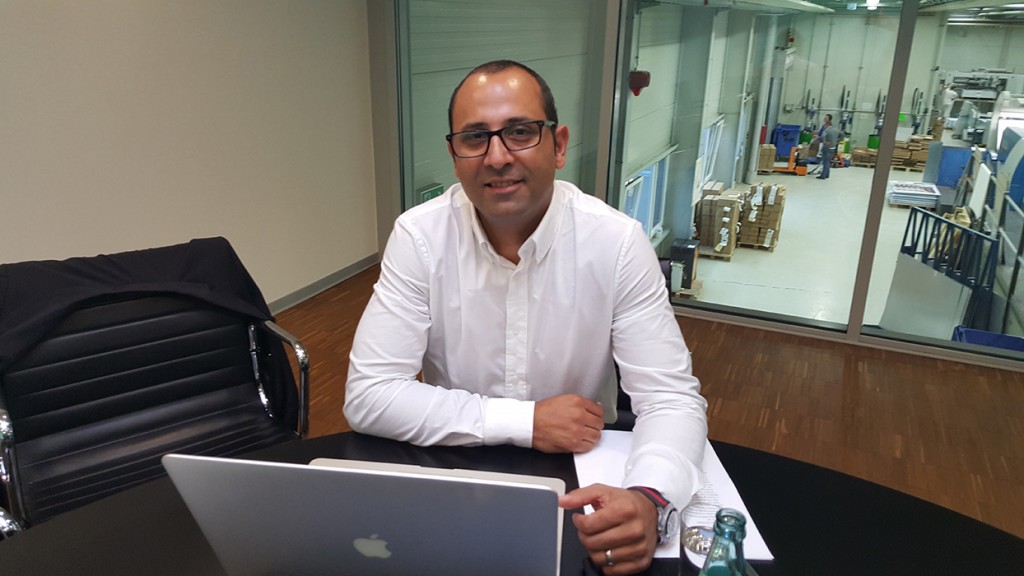
Ali Jason Bazooband: “We are purely online print players and will be consistent in the way we remain as such.” (Photo: Bernd Zipper)
Bernd Zipper: I should like to return to my initial question about what Unitedprint’s key-account strategy is.
Ali Jason Bazooband: Key-account management is for us as an online print provider essentially a completely different animal to what it would be for a “normal” company. Actually all customers should be treated as key accounts. But we have hundreds of thousands of customers that place orders worth small amounts of money. We just could not afford to employ as many co-workers as we would want to do such a job. Furthermore no customer would be prepared to pay for it. But key accounts are a fact of business life.
At Unitedprint these are customers that spend 3000 Euros or more a year. That’s not very much, nevertheless they enjoy key-account status, which includes discounts and personal services provided by a dedicated co-worker. The key account does not end up in the call center, where incidentally our Support team does a superb job of providing a free-of-charge service. We have installed other specific features for key accounts. That’s because customers want to feel they are treated differently, want to obtain benefits other than just lower prices. We keep on providing new services and programs for our key accounts, e.g. our EFS program (Express for Standard), where our key accounts get express deliveries at standard prices.
Furthermore by using our “Pay later“ (LaterPay) service, which we have introduced throughout Europe, they can get 30, 60 or 90 days credit on the invoices they have to pay, which of course is convenient, particularly in the print industry.
Bernd Zipper: Other competitors opt to provide layout services, direct support, local stores etc. in order to generate key accounts and firms that order regularly from them. Do you believe that a standardized Web-to-Print 3.0 portal is sufficient?
Ali Jason Bazooband: We are online print providers and do everything we possibly can to offer our customers a wide variety of attractive products, superlative product quality, the fastest delivery lead times and best possible prices. I believe we have enough on our plates providing all that. All these other issues, such as custom design services, would make a mockery of our system – apart from anything else, these are our customers’ core services, and they are much better at providing them than we are – we don’t even want to start competing with them. We are purely online print players and will be consistent in the way we remain as such.
Bernd Zipper: Great way to close. Thank you.
Ali Jason Bazooband: Thanks.
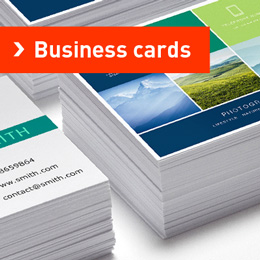
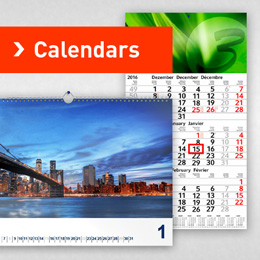
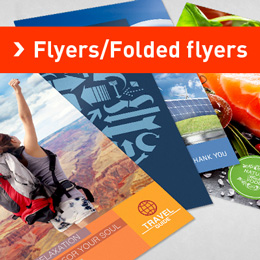
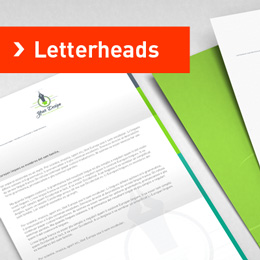
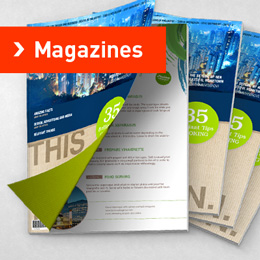
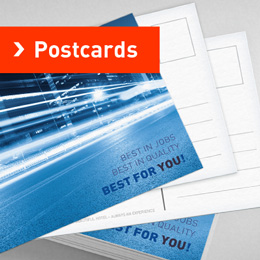
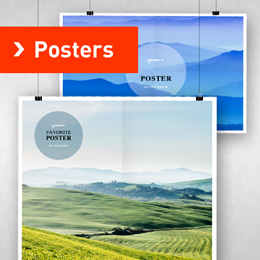
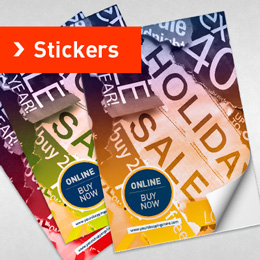

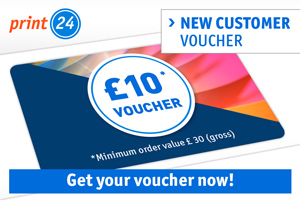
I really enjoyed reading this article, it was very frank, open and informative. However, it still left unanswered the one question I’ve been asking for nearly 8 years now … when are you actually going to open up your online print shop program. You’ve had links to it on your website for years and years now, every now and then you update the text to say „Coming this quarter!“ but it never comes! I’ve applied no end of times for the program, but I never hear anything back apart from „We’ll let you know when we launch.“ You talk about your aversion to key accounts because you believe that things should be open to everyone, and yet in the same interview you make it clear that you have already opened your online print shop program to selected partners, but you haven’t made it available to all, even after years and years of promises and commitments. Can you offer any kind of report on the progress you are making toward actually opening up the program, finally, after much waiting? Or a date that you will actually stick to?
Hello Philip,
We really appreciate your comment and are glad to know you liked our article.
As per discussing the matter you raised, could you please send us an email to [email protected]?
Kind regards,
The print24 Team